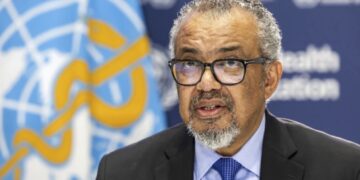By Enyichukwu Enemanna
The outbreak of mpox in Africa is no longer considered an international health emergency, the World Health Organisation (WHO) said on Friday, downplaying its efficacy to trigger serious health threat.
WHO Director-General Tedros Adhanom Ghebreyesus told reporters that an emergency panel created after the outbreak advised that the situation is no longer an international emergency, and “I have accepted that advice.”
The new form of mpox emerged early 2024 in Congo and neighbouring African countries. It is spread through close contact including sexual intercourse.
In August last year, WHO declared it a global health emergency.
International emergency declaration of an outbreak is WHO’s highest level of warning about threatening health issues. It triggers the release of resources and enhanced public awareness campaigns, in addition to other measures.
“Of course, lifting the emergency declaration does not mean the threat is over, nor that our response will stop,” the WHO chief said.
Mpox is a rare disease caused by infection with a virus that’s in the same family as the one that causes smallpox.
It is endemic in parts of Africa, where people have been infected through bites from rodents or small animals.
Its symptoms can include fever, chills and body aches. In more serious cases, people can develop lesions on the face, hands, chest and genitals.



































